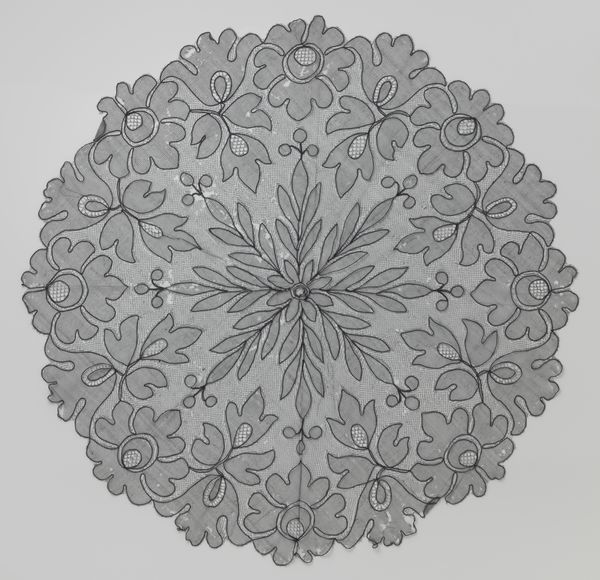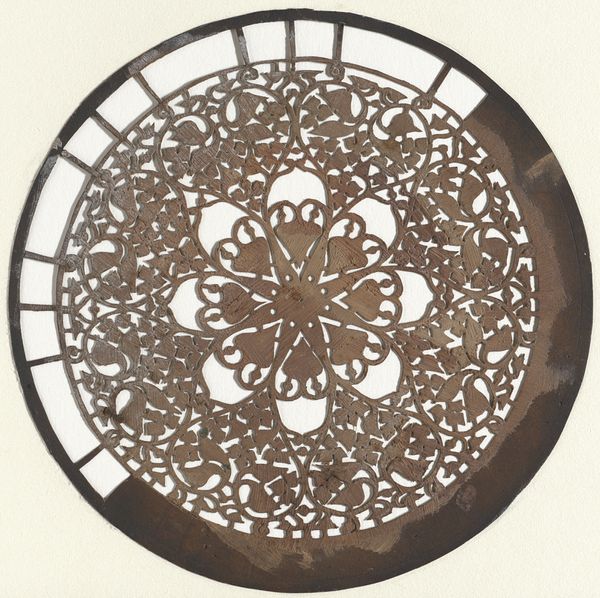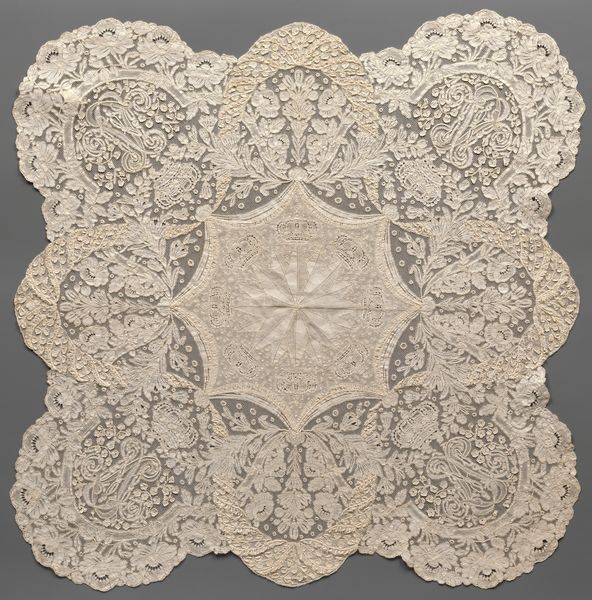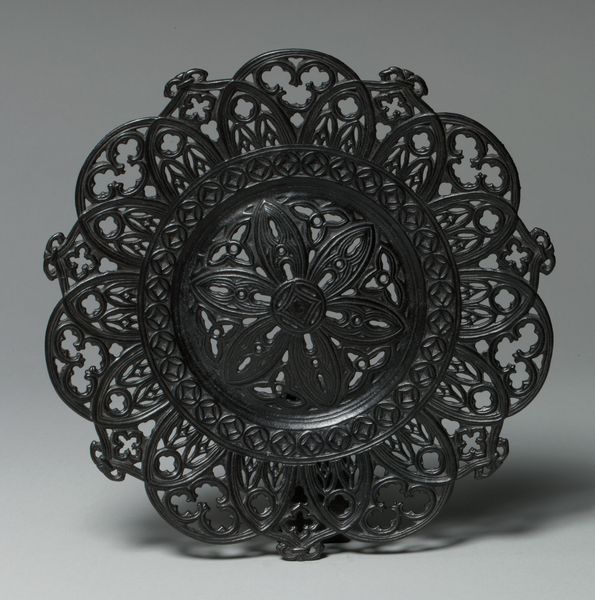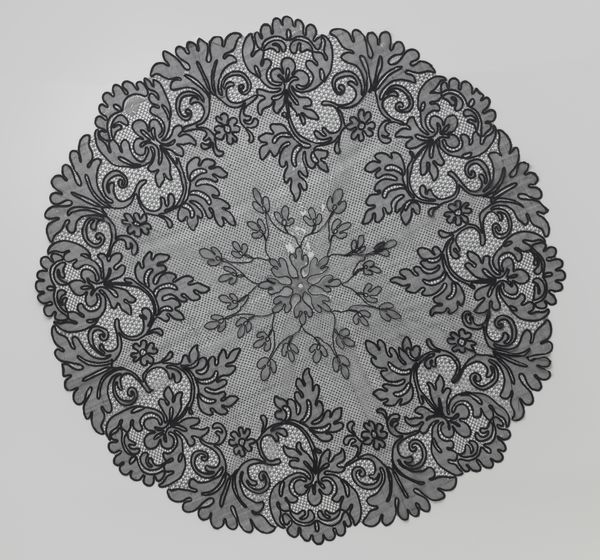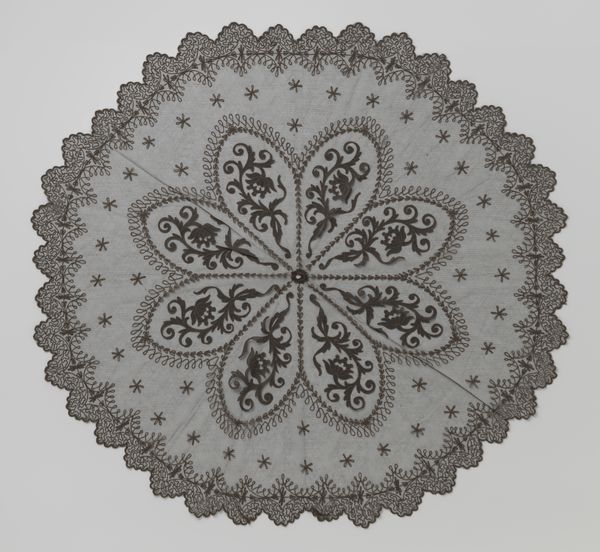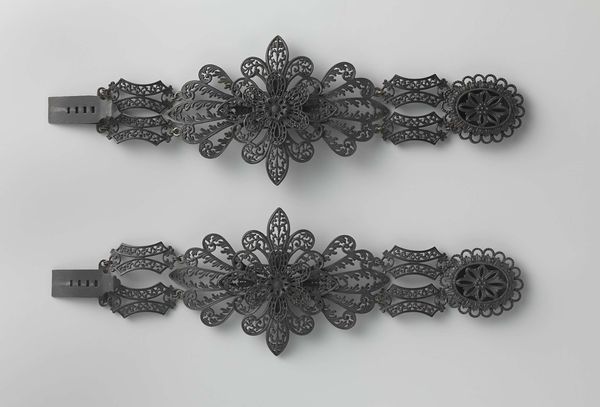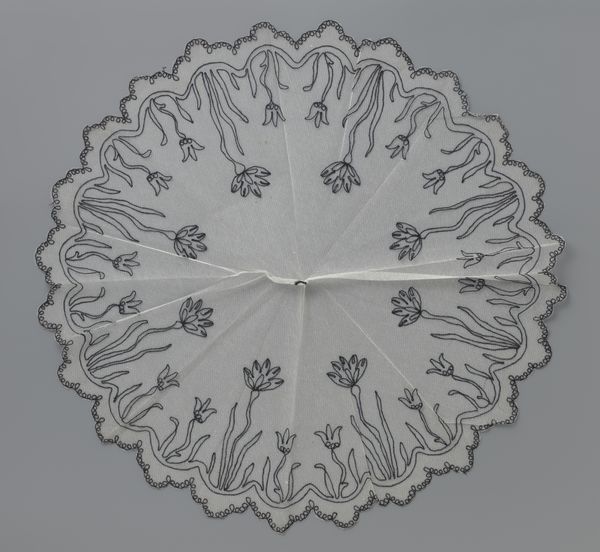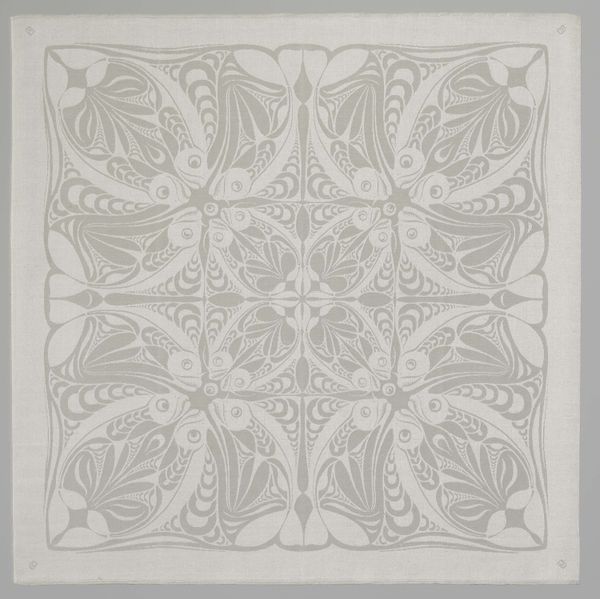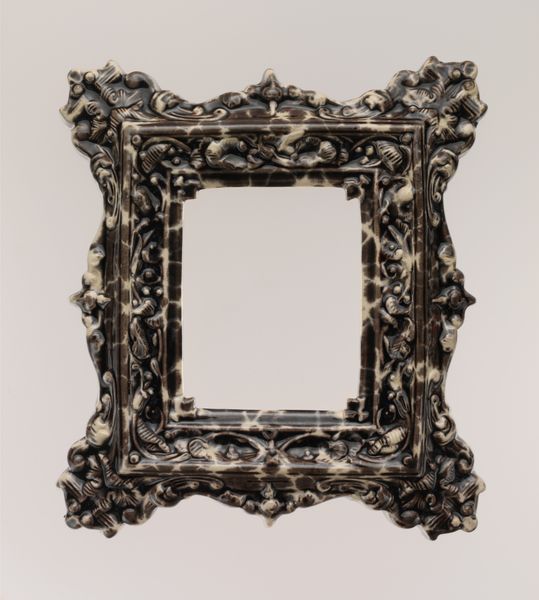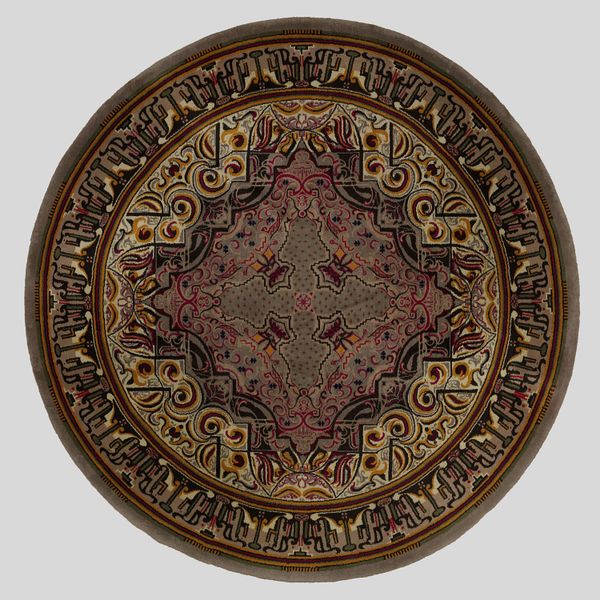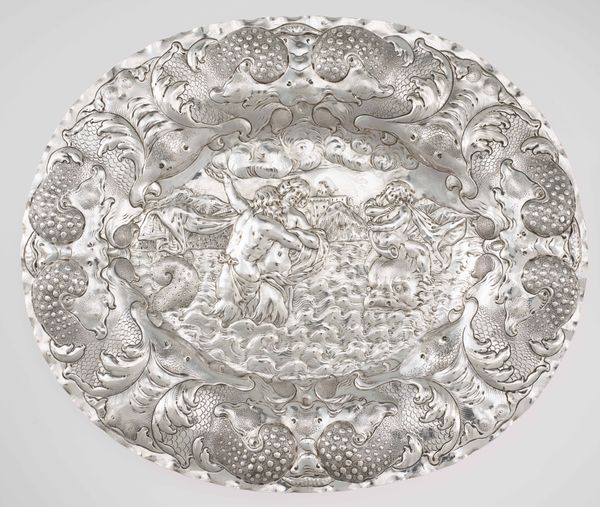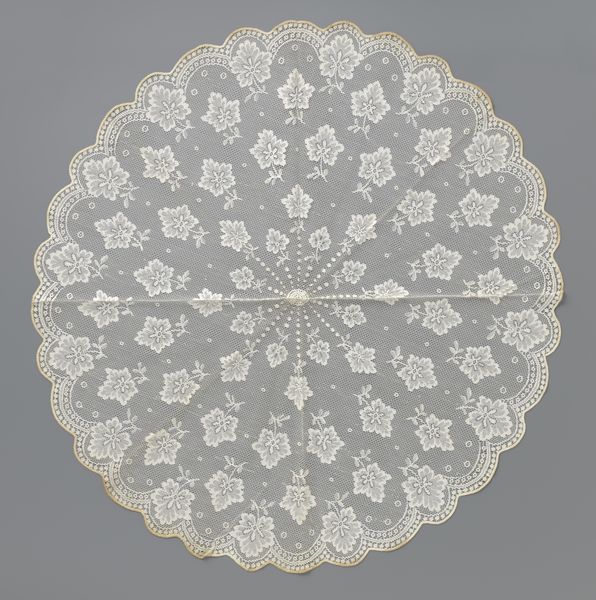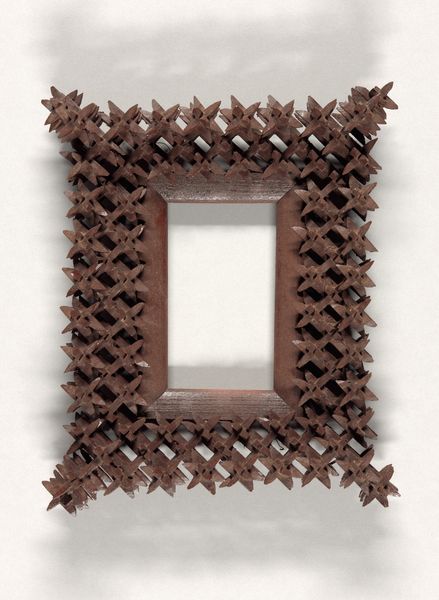
Elevator Grille Ornament from Schlesinger and Mayer Store, Chicago, Illinois 1903 - 1904
0:00
0:00
ornament, bronze, architecture
#
natural stone pattern
#
circular oval feature
#
ornament
#
bronze
#
hand-embroidered
#
cross
#
abstract pattern
#
repetitive shape and pattern
#
organic pattern
#
geometric
#
arch
#
men
#
united-states
#
pattern repetition
#
round circular shape
#
layered pattern
#
combined pattern
#
architecture
Dimensions: Diam. 56 cm (23 5/8 in.)
Copyright: Public Domain
Curator: Look at this intriguing elevator grille ornament. It comes from the Schlesinger and Mayer Store in Chicago, designed by Louis H. Sullivan between 1903 and 1904. What are your immediate thoughts? Editor: It reminds me of a frozen firework display, that brief moment of radiant complexity hanging suspended in the air. Curator: That's lovely! It's bronze, though its burnished tone evokes a different kind of ephemeral beauty—more like a fading sunset. Sullivan was a real pioneer in using ornament not just as surface decoration, but as an integral part of the building’s identity. Editor: Absolutely! You can sense the architect really fighting against the industrial coldness of the era, almost imbuing this bronze with a soul. I find myself thinking about the function of the elevator itself. Such ornamentation transforms a purely utilitarian element into an experience. What kind of societal statement was he trying to convey? Curator: Sullivan was deeply interested in democratic ideals, seeing architecture as a tool for social uplift. Department stores, in their early days, were exciting spaces of consumption and aspiration, accessible to a broader public. These ornaments transformed the experience of something mundane—like riding an elevator—into a moment of beauty available to everyone. He often combined geometric shapes with natural, organic motifs. Editor: The tension between geometry and the organic is palpable; nature trying to burst through rigid grids! It almost feels Art Nouveau. I appreciate how the modularity suggests infinite expansion, which could metaphorically connect shoppers to the boundless possibilities within this new department store environment. It’s not only ornament; it's architecture enacting cultural transformation. Curator: Well said! It serves as a reminder that art and beauty have the potential to elevate even the most commonplace activities. Editor: It gives me hope, a small but precious glimpse into a past where art infiltrated every level of social structure.
Comments
No comments
Be the first to comment and join the conversation on the ultimate creative platform.
